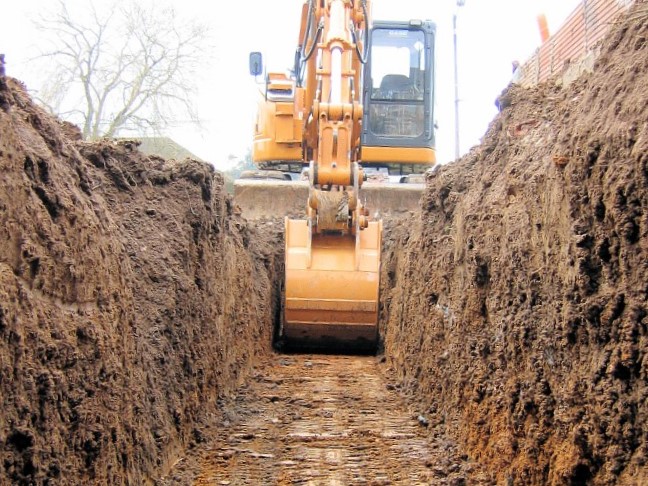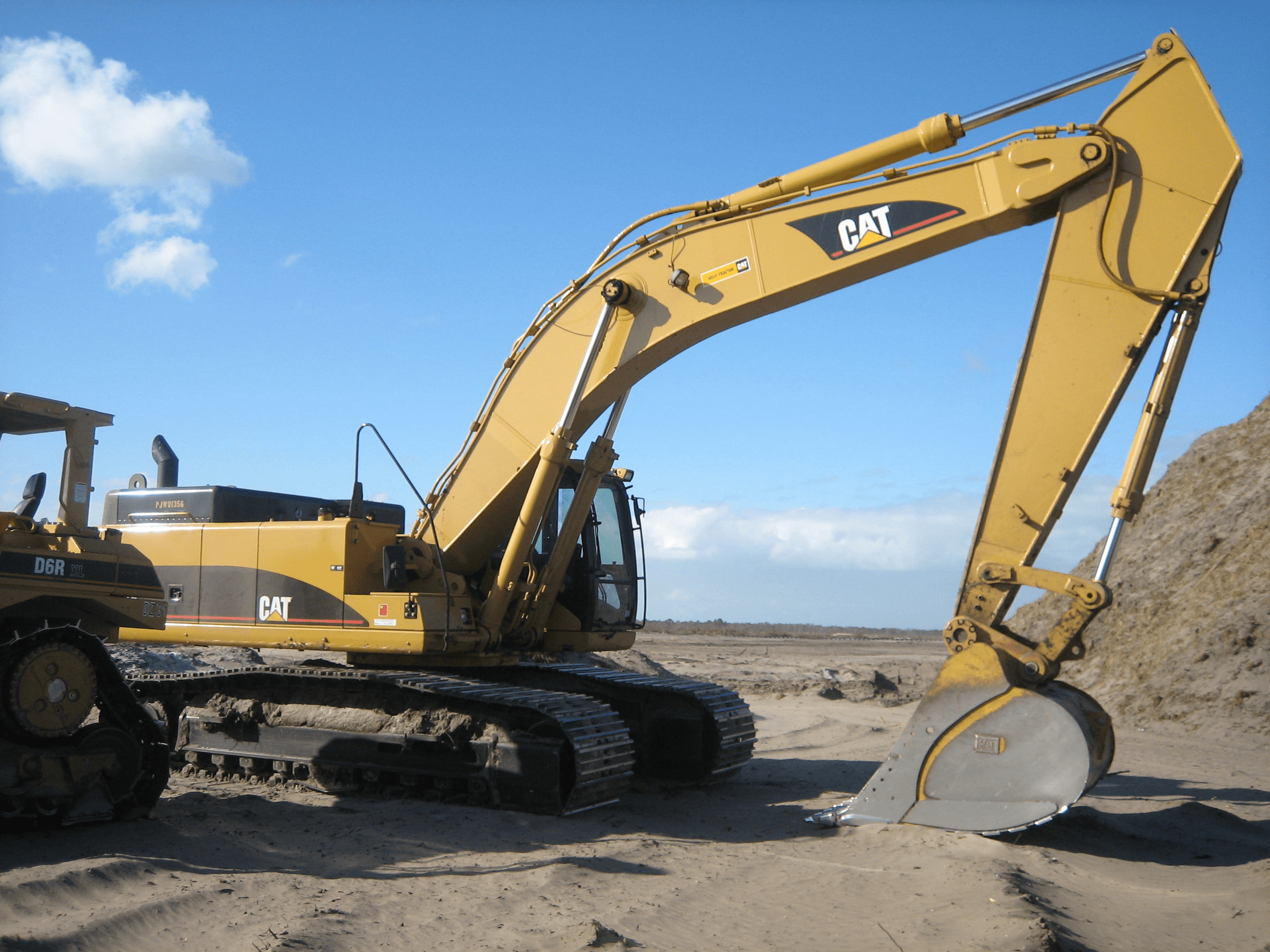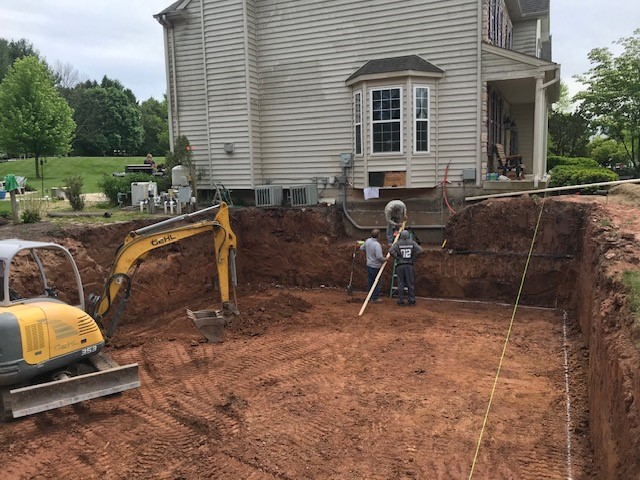Excavating Ohio - Top Excavation Professionals for Ohio Projects
Excavating Ohio - Top Excavation Professionals for Ohio Projects
Blog Article
Comprehensive Excavation Strategies: Mastering the Fundamentals for Success
In the realm of building and construction and civil design, the relevance of effective excavation methods can not be overemphasized. The mindful planning, exact implementation, and precise focus to detail called for in excavation projects demand a thorough approach that incorporates various essential facets. From first soil evaluation to the execution of precaution and routine progression monitoring, grasping these core aspects is essential for attaining success in any excavation venture. Nonetheless, the real mastery lies not simply in recognizing these principles yet in flawlessly integrating them to navigate the complexities of excavation jobs with skill.
Comprehending Excavation Job Planning

Successful excavation projects are improved the foundation of careful and extensive preparation. The preliminary stage of any type of excavation task is the drawing board, where important decisions are made that can significantly affect the outcome of the job. Throughout this stage, it is essential to collect all pertinent information about the site, including topographical studies, dirt structure, and any kind of prospective hazards that may exist. Recognizing the task extent, budget, and timeline constraints is vital for producing an extensive excavation plan that guarantees the task's success.
One secret aspect of excavation job planning is the advancement of a comprehensive timeline that outlines the sequence of tasks, target dates, and landmarks. By meticulously taking into consideration all these elements throughout the preparation stage, excavation jobs can be performed effectively and effectively, leading to successful end results - dump truck companies in ohio.
Soil Evaluation and Website Evaluation
Carrying out detailed soil evaluation and website evaluation is an important action in the preparation phase of any type of excavation task. Dirt analysis includes establishing the composition, structure, and homes of the dirt at the excavation site. This information is important for comprehending the soil's bearing ability, dampness content, and potential for erosion, which are crucial consider identifying the excavation techniques and devices required for the project.
Website examination exceeds dirt evaluation and encompasses a more comprehensive analysis of the total website problems. This assessment consists of recognizing any kind of possible hazards, such as underground energies, ecological problems, or unpredictable surface, that can influence the excavation procedure. By extensively evaluating the website, job supervisors can develop reliable excavation approaches that focus on safety and security, effectiveness, and environmental management.
Making use of sophisticated innovations like ground-penetrating radar, soil tasting, and drone surveys can boost the precision and effectiveness of soil evaluation and website analysis. Spending time and resources in these preliminary steps can eventually save time and protect against pricey delays or problems throughout the excavation process.
Tools Choice and Usage
Efficient excavation projects count heavily on tactical tools selection and utilization to ensure ideal performance and efficiency. Choosing the ideal devices for the job is essential in optimizing effectiveness and reducing downtime. Aspects such as the sort of soil, depth of excavation, and task scope play a significant function in identifying the most appropriate equipment for the task handy.

Along with picking the ideal tools, appropriate utilization is key to project success. Operators should be trained to manage the devices safely and effectively - dump truck companies in ohio. Normal upkeep checks and timely repair services assist stop malfunctions and make sure constant performance throughout the project
Safety Measures and Regulations Conformity
In the world of excavation tasks, prioritizing precaution and compliance with laws is extremely important to making certain a safe and secure and legitimately audio operational setting. Safety and security actions include a series of methods, including performing thorough website assessments, applying appropriate look at this website signage and obstacles, and giving ample safety training for all personnel involved in the excavation process. Adherence to policies, such as OSHA requirements in the USA, makes sure that the excavation job fulfills the needed standards to shield workers, onlookers, and the surrounding atmosphere.

Tracking Development and Adjusting Methods
Exactly how can project supervisors successfully track the advancement of excavation tasks and adjust their techniques accordingly to maximize outcomes? Tracking progress is essential for making certain that excavation jobs remain on track and fulfill due dates. Project supervisors can use various devices and strategies to track progress, such as day-to-day report card, normal site assessments, and progressed tracking technologies like drones and general practitioners tracking systems. By continuously keeping an eye on the job's advancement, supervisors can recognize any potential delays or issues beforehand and take positive steps to resolve them.

Final Thought
To conclude, mastering navigate here the principles of detailed excavation methods is crucial for the success of any kind of project. By understanding job planning, assessing soil and site problems, choosing ideal devices, following safety guidelines, and monitoring development, project managers can ensure a smooth and reliable excavation procedure. Executing these techniques will cause effective results and decrease prospective threats or troubles during the excavation job.
The initial phase of any kind of excavation task is the preparation stage, where essential decisions are made that can dramatically impact the result of the project. Comprehending the task scope, budget plan, and timeline restraints is essential for producing a thorough excavation plan that ensures the job's success.
Just how can project managers efficiently track the improvement of excavation projects and adapt their methods as necessary to optimize outcomes? By closely checking progression and being prepared to adapt methods, job supervisors can improve the overall success of excavation projects.
By understanding project planning, evaluating dirt and website problems, selecting appropriate equipment, complying with safety and security regulations, and keeping track of progress, project managers can ensure a reliable and smooth excavation procedure.
Report this page